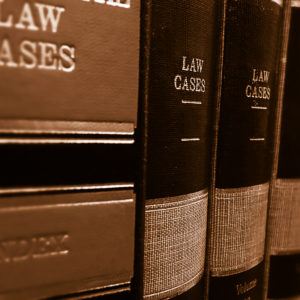John Roberts is one of the most powerful people in America. He has been chief justice of the United States for 13 years, yet half of the people who live in this country don’t know who he is.
That’s just one of many surprising results of the American Bar Association’s inaugural Survey of Civic Literacy.
This year, the ABA commissioned a survey that asked 1,000 adults in the United States a series of questions about the law, the U.S. Constitution and the rights of all people — citizens and non-citizens — who live here. We also asked about support for the First Amendment and how it applies to everyday life.
We initiated the survey as part of the ABA’s annual celebration of Law Day. Every year on May 1, lawyers mark the occasion with community events, awards and programs to teach students and remind adults about the strength of our Constitution and the rule of law.
This year, the ABA decided to test how well adults understand the basic underpinnings of our American democracy. The results reveal strong public support for the First Amendment, but also some puzzling gaps in what most people know.
While just over half of the people surveyed didn’t know that John Roberts is chief justice, 23 percent thought Supreme Court Justice Ruth Bader Ginsburg held that position and 16 percent thought Justice Clarence Thomas did.
Many people — one out of four — did not know that the first 10 amendments to the U.S. Constitution are called the Bill of Rights. A large number — also one out of four — did not know that the Declaration of Independence declared our nation’s independence from Great Britain. Eleven percent thought it freed the slaves in Confederate states.
Many people also were unaware of the rights and responsibilities of citizens compared to non-citizens. Nearly one in three — 30 percent — thought freedom of speech is a right reserved for citizens. More than one in five thought only citizens must pay taxes, and one in 10 thought only citizens must obey the law.
There was some confusion, too, about the First Amendment. More than half of those surveyed — 55 percent — knew that the right to vote is not part of the First Amendment. But 18 percent thought freedom of the press isn’t part of the amendment, and another 18 percent thought the right to peaceably assemble isn’t covered by it. More than one in 20 people did not know that freedom of speech is part of the First Amendment.
The survey did find strong support for the First Amendment — which, for the record, protects the freedoms of religion, speech, press and assembly and the right to petition the government for redress of grievances. For example:
—81 percent agree that people should be able to publicly criticize the president or any other government leader.
—80 percent believe individuals or groups should have the right to request government records or information.
—75 percent say government should not be able to prevent news media from reporting on political protests.
And yet, most people — 54 percent — incorrectly believe that the First Amendment does not allow people to burn the U.S. flag in a political protest. That issue was settled in a historic 1989 Supreme Court ruling called Texas v. Johnson.
Clearly, we have more work to do. American democracy depends on an informed citizenry. It is vital that everyone share the same basic knowledge about the foundation of our democracy — the rule of law — and our rights and responsibilities.
Moving forward, the ABA will launch an educational program based on these survey results, to re-acquaint the public with the law and the Constitution. As former Supreme Court Justice Sandra Day O’Connor once said, “The practice of democracy is not passed down through the gene pool. It must be taught and learned anew by each generation of citizens.”
On Law Day, and every day, celebrate America by learning something new about the Constitution. Our democracy depends upon it.

